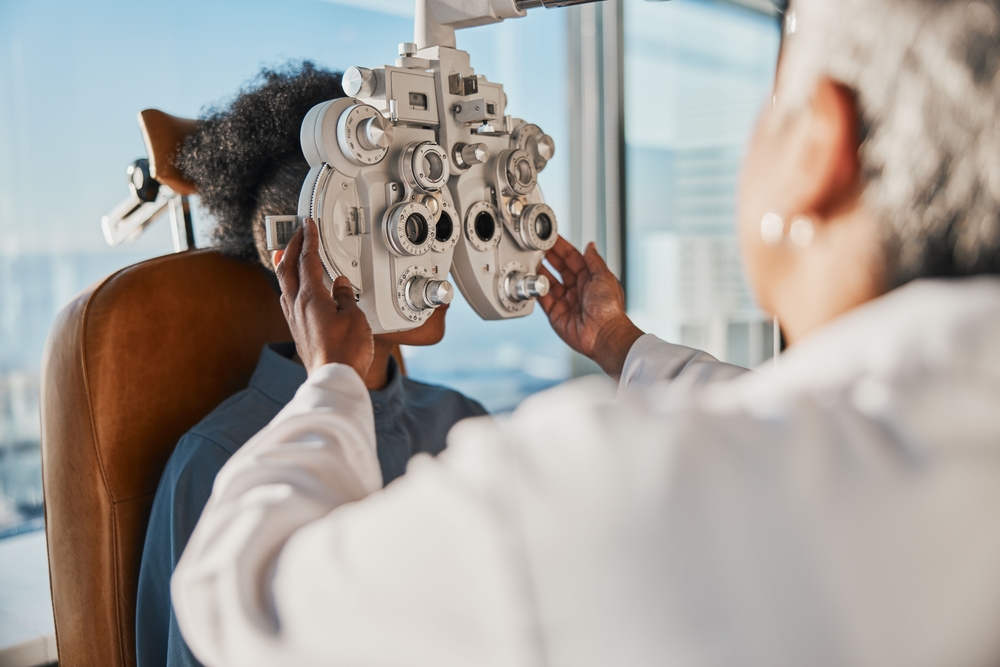
Vision screening and comprehensive eye exams are two primary methods of evaluating the health of your eyes. While they may seem similar on the surface, they serve different purposes and provide different levels of insight into your vision and overall eye health. Both methods play a crucial role in maintaining optimal eye health, but their applicability depends on various factors, including age, existing health conditions, and symptoms.
What is a Vision Screening?
A vision screening is a relatively quick and straightforward process. It’s designed to identify individuals who may have vision problems. It typically involves a series of tests to check your visual acuity, or sharpness of vision. Vision screenings are often conducted by pediatricians, school nurses, or volunteers during school-based screenings or health fairs.
However, vision screenings are not as comprehensive as a full eye exam. They are merely preliminary tests to identify potential vision problems, and they can't diagnose eye diseases. If a problem is detected during a vision screening, you will be referred for a comprehensive eye exam for further testing and diagnosis.
Understanding Comprehensive Eye Exams
A comprehensive eye exam, on the other hand, is a thorough assessment of your eyes, performed by an optometrist. It involves a series of detailed tests to evaluate your vision and check for eye diseases. These tests can include visual field tests, depth perception tests, eye muscle tests, and more.
In a comprehensive eye exam, the eye doctor will also use special equipment to look at the structures inside your eyes, such as the retina and optic nerve. This allows them to detect signs of diseases like glaucoma, macular degeneration, or diabetic retinopathy, that could lead to vision loss if not treated promptly.
Vision Screening Vs. Comprehensive Eye Exams
The primary difference lies in the depth and breadth of the examination. A vision screening is a brief assessment designed to identify potential vision problems or risk factors. It does not involve a diagnosis.
Conversely, a comprehensive eye exam is an in-depth evaluation of your eyes, including your vision and overall eye health. It can diagnose eye diseases and conditions, and it often involves dilating your pupils to get a better look at the inside of your eyes.
Another notable difference is who performs these examinations. Vision screenings are often conducted by healthcare professionals who are not eye doctors. Comprehensive eye exams, however, are performed by experienced optometrists.
Which One is Right For You?
The choice between vision screening and comprehensive eye exams ultimately depends on your individual needs and circumstances. For instance, vision screenings can be a good starting point for children or individuals with no known risk factors for eye disease. They can help detect common vision problems like nearsightedness or farsightedness.
However, if you have a family history of eye disease, are experiencing symptoms of an eye problem, or are over the age of 40, a comprehensive eye exam is the better choice. This type of exam can detect not only vision problems, but also early signs of serious eye diseases that can cause vision loss.
The Importance of Regular Eye Exams
Regardless of the method you choose, regular eye exams are crucial for maintaining good eye health. They allow for early detection of vision problems and eye diseases, which can significantly improve the chances of successful treatment and preservation of vision.
Regular eye exams are particularly important for children, as vision problems can affect their academic performance and social development. For adults, especially those over the age of 40, regular eye exams can help detect age-related eye diseases, such as cataracts, glaucoma, and age-related macular degeneration.
Making an Informed Decision About Eye Care
Both vision screening and comprehensive eye exams play a pivotal role in maintaining good eye health. While vision screenings can help detect potential vision problems, comprehensive eye exams provide a more in-depth evaluation of your eyes and can diagnose a variety of eye diseases. By understanding the differences and purposes of these methods, you can make an informed decision about your eye care.
Take the next step towards protecting your eye health and schedule a comprehensive eye exam with Eye & Health Tribeca at our New York, New York office. We are committed to providing excellence in quality care to all our patients throughout New York City. Please call (212) 431-4059 to book an appointment today.





